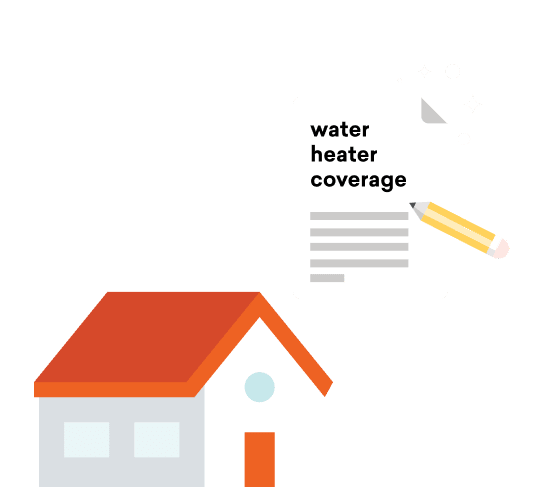
Your home insurance usually covers damage your water heater causes, but it may not cover the replacement of your water heater itself.
Jerry Brown Edited by Kelly Larsen Updated September 6, 2024

Our goal is to give you the tools and confidence you need to improve your finances. Although we receive compensation from our partner lenders, whom we will always identify, all opinions are our own. Credible Operations, Inc. NMLS # 1681276, is referred to here as "Credible."
Although water heaters typically have a lifespan of about 10 to 12 years, they can burst before that point. If this happens, you may file a homeowners insurance claim and discover your policy won’t pay to replace your water heater.
The good news is standard home insurance usually covers water heater damage to your home and personal belongings, as long as your policy covers the event that caused the damage.
Here’s what you need to know about home insurance and water heaters:
A standard home insurance policy typically covers damage from a water heater if it’s the result of a covered event, such as a fire or explosion. But it usually doesn’t cover the replacement cost of your water heater itself.
When it comes to water heater damage, the following types of coverage might apply:
The reimbursement limits for water heater damage to your home vary based on several factors, such as your home insurance policy, your deductible (the amount you pay before your insurance kicks in), and the type of damage your water heater caused.
For example, if your water heater damages your home’s physical structure, your insurer may help repair or replace the damage up to your dwelling coverage limit.
Personal property coverage limits are typically around 70% of your dwelling coverage. So, if your dwelling coverage is $200,000, your personal property coverage limit could be about $140,000.
Your loss of use coverage limit is also based on your dwelling coverage — it’s often set at 20% of your dwelling coverage.
Good to know: You should purchase enough home insurance to fully replace your home and personal belongings in the event your home gets destroyed. If your current coverage limits aren’t enough to do that, you can contact your insurance agent to increase your coverage.
Compare home insurance from top carriers